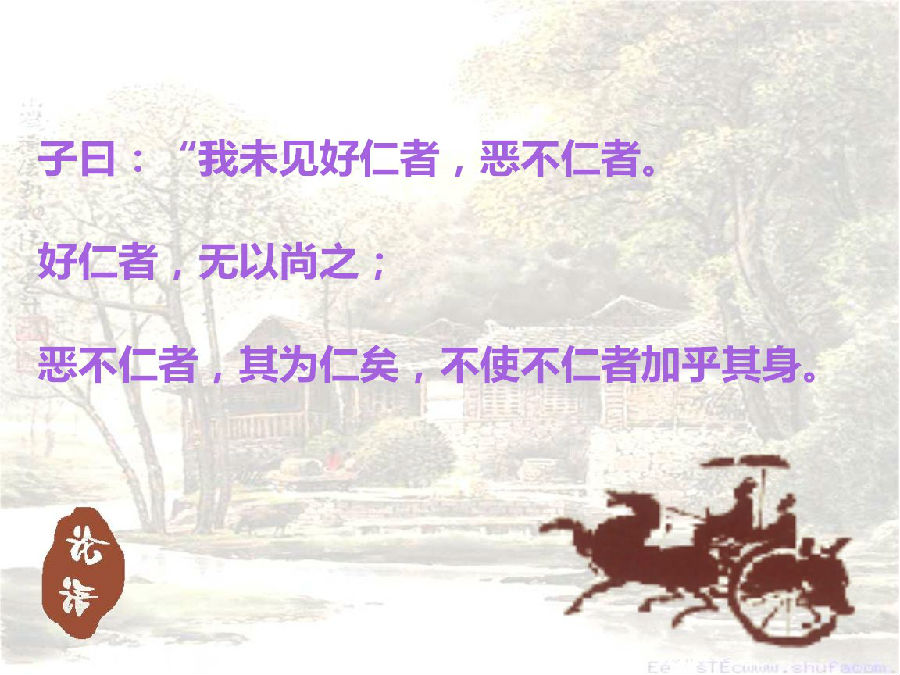The Master said, "I have not seen a person who loved virtue, or one who hated what was not virtuous.
子曰:“我未见好仁者,恶不仁者。
He who loved virtue, would esteem nothing above it.
好仁者,无以尚之;
He who hated what is not virtuous, would practice virtue in such a way that he would not allow anything that is not virtuous to approach his person.
恶不仁者,其为仁矣,不使不仁者加乎其身。
"Is any one able for one day to apply his strength to virtue?
有能一日用其力于仁矣乎?
I have not seen the case in which his strength would be insufficient.
我未见力不足者。
"Should there possibly be any such case, I have not seen it."
盖有之矣,我未之见也。”
The Master said, "The faults of men are characteristic of the class to which they belong.
子曰:“人之过也,各于其党。

By observing a man's faults, it may be known that he is virtuous."
观过,斯知仁矣。”
The Master said, "If a man in the morning hear the right way, he may die in the evening without regret."
子曰:“朝闻道,夕死可矣。”
The Master said, "A scholar, whose mind is set on truth, and who is ashamed of bad clothes and bad food, is not fit to be discoursed with."
子曰:“士志于道,而耻恶衣恶食者,未足与议也。”
The Master said, "The superior man, in the world, does not set his mind either for anything, or against anything; what is right he will follow."
子曰:“君子之于天下也,无适也,无莫也,义之与比。”
The Master said, "The superior man thinks of virtue; the small man thinks of comfort.
子曰:“君子怀德,小人怀土;
The superior man thinks of the sanctions of law; the small man thinks of favors which he may receive."
君子怀刑,小人怀惠。”
The Master said: "He who acts with a constant view to his own advantage will be much murmured against."


